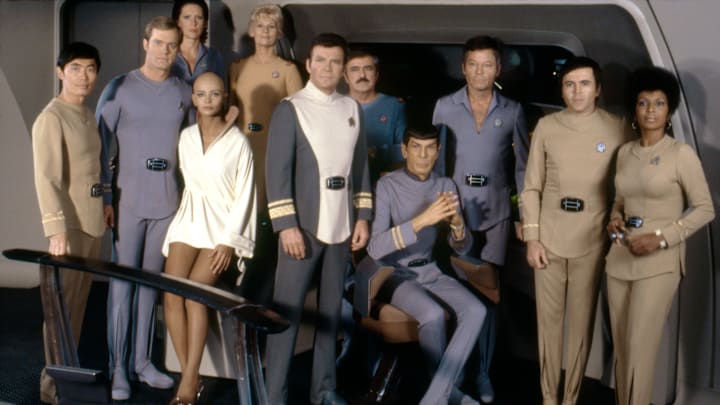In 1977, Star Wars debuted in the United States and took the country by storm. It became a phenomenon and everyone, everywhere tried to capture the success of the film. Films like Starcrash, (featuring a young David Hasselhoff) started to litter movie theaters in an attempt to siphon some of Star Wars magic for themselves. Everyone with a science fiction IP got in on it.
Star Wars' reach was everywhere, and many plans were made to capitalize off the property, even if certain studios had nothing to do with it. It did impact the scene at the time. While it can be given credit for affecting a lot of things, what it can't be truly credited with is bringing back Star Trek to the masses.
Yet some want to claim otherwise. In a write-up from Digital Chew, it's claimed that DC Fontana gave credit to Star Wars for the return of Star Trek to the masses, namely the follow-up television series, The Next Generation. It's possible that Fontana made this claim. That's fair, but it's still not true even if she did.
Star Wars didn't truly influence anything Star Trek did, even as far back as 1977.
See, the first Star Wars film, A New Hope, debuted in 1977. A sequel series to the 1966 Star Trek was in the works, called Star Trek: Phase II (The piece erroneously claims was the name of the film division) was already in pre-production before Star Wars was released. The sequel series was set to be a tad different than the 1966 series. It stood to feature only a few of the original series characters while focusing heavily on some brand-new ones. Many of whom would see the light of day in Star Trek's first film.
The sequel series wasn't impacted by Star Wars at all, what did impact it was a failed startup channel from Paramount. They wanted to launch Phase II alongside a new television channel but the revenue they were expecting the channel to generate from ads was so low, that they bailed on the plan. Since Phase II was already in the works, things were reshuffled and instead, Phase II became a film; Star Trek The Motion Picture.
While the hope was high that The Motion Picture would do well, and some work was done to it to be a bit more like Star Wars in scope, Star Trek didn't get brought back to the mainstream because of Star Wars. If anything, the first film in the original trilogy, A New Hope, hindered Star Trek some. A Star Trek film had been in the works throughout the mid-1970s, alongside Phase II.
Despite Star Trek having two movies written ("The God Thing" and "Planet of the Titans") both scripts were rejected, and eventually the movie was scrapped as it was too close to the release of Star Wars to stand on its own.
The article in question directly names The Next Generation as the franchise that Star Wars "helped" get started. That's also not true. The film franchise, for the most part, was a roaring success for Star Trek, but sustainability and growth became the topics of conversation in the mid-1980s. With William Shatner and Leonard Nimoy asking for more and more money, the idea to pivot to a television franchise again was seen as a prudent and financially responsible one. Especially if they lost Nimoy and Shatner.
Having lasted 20 years at this point, and a third series already heavily worked on (the second being the Animated Series), it was a no-brainer to go back to the television roots and create a new show. It wasn't because of Star Wars' success that The Next Generation was created, but Star Trek's.
It's hard to find old quotes, so maybe Fontana did credit Star Wars for influencing Paramount to create a new show, but it stands to reason that a new show wouldn't have happened without the success of the Star Trek film franchise and that Star Trek film franchise was being built well before Star Wars ever debuted.
It's time to give Star Trek the credit for Star Treks' own achievements.
